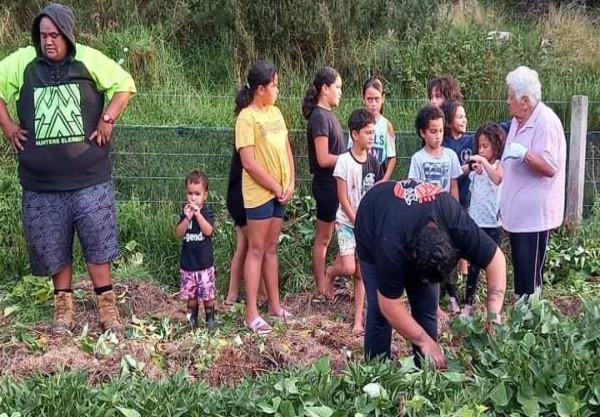The importance of Te Tiriti o Waitangi | Te hiranga o Te Tiriti o Waitangi
In Aotearoa New Zealand, there is a national framework that applies in a just transition process: Te Tiriti o Waitangi.
On this page
At the heart of Te Tiriti o Waitangi is the exchange of rights and responsibilities between Crown and Māori. The right of the Crown to govern in article 1 and the right of Māori to exercise tino rangatiratanga sovereignty in article 2 are fundamental in a just transition process.
Tino rangatiratanga requires central and local government to come to the community, to the hapū, to the iwi or to the marae meeting ground to hear what the issues, needs or aspirations are, from the ground up, to know how best to respond.
Just transitions should recognise the past and ongoing injustices and inequities for Māori. In iwi, hapū and marae histories, colonisation, loss and trauma are not things that can be spoken or written about lightly. These have been pervasive, and the effects are deeply felt and ongoing. Until this is addressed, there is a significant risk of perpetuating injustice in new ways.
To give effect to Te Tiriti, a just transition process must be resourced and empowered through regulatory and legal frameworks. This is where communities need support from government agencies, reflecting Crown responsibilities under Te Tiriti. Where marae, hapū or iwi are empowered, they are then better equipped to support those in their rohe region.
The following links offer more guidance on Te Tiriti o Waitangi:
The Treaty of Waitangi/Te Tiriti o Waitangi(external link) — Waitangi Tribunal
Te Tiriti o Waitangi – Treaty of Waitangi(external link) — Ministry of Justice
Te Tiriti o Waitangi/The Treaty of Waitangi(external link) — Te Papa
Ngāti Manu keep the home fires burning (Kāretu Valley, Bay of Islands)
Building on generations of leadership, and with support from several projects, Ngāti Manu have been able to accelerate their social and ecological plans for the Kāretu Valley in the Bay of Islands.
In 2021, Ngāti Manu established a māra kai community garden and harvested kūmara sweet potatoes for distribution to the local hapori community, reconnecting descendants with their whenua land and rebuilding customary food systems. In 2022, a native tree nursery was established to support tree planting in the valley, enabling practices of kaitiakitanga guardianship.
Ngāti Manu established a marae-based education programme, Nga Kaitiaki o te Ahi. The aim of the programme is “to enable successive generations of Ngāti Manu ahi kā to keep the home fires burning for and on behalf of the ever-growing diaspora”. The programme does this by embedding values and practices of kaitiakitanga in young people.
For Ngāti Manu, cultivating practices that nourish social and ecological wellbeing is vital – not least in the face of climate-induced vulnerabilities. By combining customary knowledge and values with western science and technologies, Ngāti Manu have, in a short space of time, built resilience, responsiveness and innovation in the face of radical social and environmental change.

Photo credit: Te Kauri McPherson

